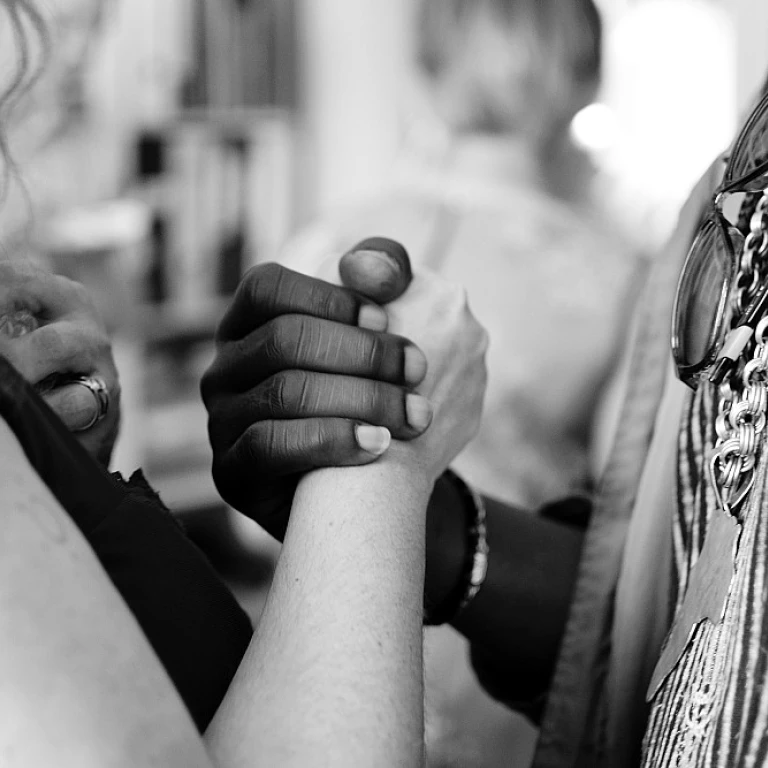
Understanding the Role of a Chief Human Resources Officer
Defining the Role of a CHRO
The Chief Human Resources Officer (CHRO) plays a pivotal role in shaping the human capital strategy of an organization. This position is not just about managing HR functions; it's about steering the company towards achieving its business goals through effective people management. A CHRO must align HR practices with the overall business strategy, ensuring that the workforce is engaged, motivated, and performing at its best.
Core Responsibilities
At the heart of the CHRO's responsibilities is the development and implementation of HR policies that support the organization's strategic objectives. This includes overseeing recruitment, training, and development programs that foster a culture of continuous improvement and high performance. The CHRO must also ensure compliance with labor laws and regulations, safeguarding the company from potential legal issues.
Leadership and Influence
Leadership is a critical component of the CHRO role. As a member of the executive team, the CHRO must influence decision-making processes, advocating for the importance of human capital in achieving business success. This involves working closely with other leaders to integrate HR strategies into the broader business framework, ensuring that the organization is well-positioned to meet its long-term goals.
Performance Coaching and Development
Performance coaching is an essential aspect of the CHRO's role. By fostering a coaching culture, the CHRO can help team members reach their peak performance. This involves implementing coaching programs that support both individual and organizational growth. Performance coaches within the HR team can help clients and team members set and achieve their goals, ultimately driving the company towards success.
For those interested in delving deeper into the skills required for effective performance reviews, you can master the art of performance review skills to enhance your HR leadership capabilities.
Key Skills Every CHRO Needs
Essential Competencies for Effective HR Leadership
In the dynamic world of human resources, the role of a Chief Human Resources Officer (CHRO) is pivotal. A CHRO must possess a unique blend of skills that go beyond traditional HR functions. These skills are crucial for driving organizational success and fostering a culture of high performance. Let's explore the key competencies every CHRO needs to excel in their role.
Strategic Vision and Business Acumen
A successful CHRO must have a strategic vision that aligns with the company's long-term goals. This involves understanding the business landscape and being able to anticipate changes that could impact the organization. By integrating business acumen with HR strategies, CHROs can help drive growth and ensure the company remains competitive. This strategic approach is essential for making informed decisions that benefit both the organization and its employees.
Leadership and Team Development
Leadership is at the core of a CHRO's responsibilities. They must be adept at developing and nurturing talent within the organization. This includes implementing coaching programs that enhance the skills of team members and prepare them for future leadership roles. By fostering a culture of continuous learning and development, CHROs can help clients achieve peak performance and meet their career goals.
Emotional Intelligence and Communication
Emotional intelligence is a critical skill for any leader, especially in HR. A CHRO must be able to understand and manage their own emotions, as well as empathize with others. This skill helps in building strong relationships with employees and resolving conflicts effectively. Additionally, excellent communication skills are essential for conveying ideas clearly and fostering an open dialogue within the organization.
Change Management and Adaptability
In today's fast-paced business environment, change is inevitable. A CHRO must be skilled in change management to help the organization navigate transitions smoothly. This involves being adaptable and open to new ideas, as well as guiding the team through periods of transformation. By embracing change, CHROs can help the organization stay agile and responsive to market demands.
Data-Driven Decision Making
Incorporating data analytics into HR practices is becoming increasingly important. A CHRO should be proficient in using data to make informed decisions about talent management, performance improvement, and workforce planning. By leveraging data, CHROs can identify trends, predict future needs, and implement strategies that drive organizational success. For more insights on mastering these skills, you can read this guide on performance review skills.
In conclusion, the role of a CHRO is multifaceted and requires a diverse set of skills. By honing these competencies, CHROs can effectively lead their organizations and contribute to a thriving workplace culture.
The Intersection of Performance Coaching and HR Leadership
The Synergy Between Performance Coaching and HR Leadership
In the realm of HR leadership, the role of performance coaching has taken on heightened significance. This dynamic between performance coaching and HR leadership fosters a culture where team members are not only encouraged to reach their goals but are empowered to exceed them. Performance coaches bring a wealth of strategies to help clients identify and leverage their strengths, which in turn supports the overall business objectives.
At the heart of this synergy is the core principle of growth. Organizations that implement performance coaching within their HR frameworks often witness substantial improvements in employee engagement and productivity. By focusing on personal and professional growth, performance coaching helps illuminate the path towards high performance, offering a tailored approach that suits each individual's unique needs.
Performance coaches work with HR leaders to design programs that motivate and inspire teams. These programs are often informed by engaging activities that cater to both new and seasoned employees. These activities serve as a foundation for group coaching sessions, ensuring that all team members have the opportunity to learn and develop.
Moreover, performance coaching facilitates strategic decision-making and problem-solving by enhancing the emotional intelligence of leaders. It is crucial for coaches to engage with team members in a way that allows them to explore their emotions and reactions in real time, promoting a deeper understanding of interpersonal dynamics.
Ultimately, the intersection of performance coaching and HR leadership sets the stage for a culture of continuous improvement. By fostering an environment where feedback is welcomed and growth is celebrated, organizations position themselves for sustained success and high performance. Performance coaching, therefore, is not merely an optional component but a vital element of top-tier HR leadership strategy.
Developing Emotional Intelligence in HR Leadership
Harnessing Emotional Intelligence for Effective Leadership
In the dynamic world of HR leadership, emotional intelligence stands as a critical skill that every chief human resources officer must cultivate. It extends beyond mere emotional awareness, playing a pivotal role in forging stronger connections with team members and driving high performance. A performance coach can facilitate the development of emotional intelligence, enabling HR leaders to effectively manage their emotions and understand the emotional cues of others. This skill is essential for creating a supportive work environment that fosters growth and collaboration.- Understanding Emotions: An emotionally intelligent leader is adept at recognizing and regulating their emotions. This understanding helps in making strategic decisions that are more insightful and less reactive.
- Empathy and Social Skills: By developing empathy, HR leaders can better understand team members' perspectives, leading to improved communication and relationship-building. This empathy can help coaches guide high-performance teams by recognizing and addressing their unique needs.
- Enhancing Self-awareness: Self-awareness allows leaders to identify their strengths and areas for improvement. It aids in personal growth and sets a benchmark for team members, fostering an environment where feedback is constructively used.
Strategic Decision-Making and Problem-Solving
Strategic Thinking in HR Leadership
In the dynamic world of human resources, strategic decision-making and problem-solving are pivotal skills for any Chief Human Resources Officer (CHRO). These skills are not just about making decisions; they involve a deep understanding of the business landscape and the ability to foresee potential challenges and opportunities. A CHRO must be adept at aligning HR strategies with overall business goals, ensuring that the workforce is not only efficient but also engaged and motivated.
Problem-Solving with a Coaching Mindset
Adopting a coaching mindset can significantly enhance a CHRO's problem-solving capabilities. Performance coaching, for instance, equips HR leaders with the tools to help team members overcome obstacles and achieve peak performance. By fostering a culture of open communication and continuous feedback, CHROs can help clients and team members alike to identify and address issues proactively. This approach not only resolves immediate problems but also contributes to long-term growth and development.
Leveraging Data for Informed Decisions
In today's data-driven world, CHROs must harness analytics to make informed decisions. By analyzing performance metrics and employee feedback, HR leaders can identify trends and patterns that may impact the organization. This data-driven approach allows for more precise strategic planning and helps in crafting targeted interventions that align with the company’s goals. Performance coaches often use similar techniques to track progress and measure the effectiveness of their coaching programs.
Collaborative Problem-Solving
Effective problem-solving in HR leadership often involves collaboration. By working closely with other departments and engaging with team members, CHROs can gain diverse perspectives that enrich the decision-making process. This collaborative approach not only fosters a sense of ownership among team members but also ensures that solutions are comprehensive and sustainable. Group coaching sessions can be particularly beneficial in this context, as they encourage collective brainstorming and shared learning experiences.
Ultimately, the ability to make strategic decisions and solve problems effectively is what sets high-performing CHROs apart. By integrating performance coaching techniques and leveraging data, HR leaders can drive significant improvements in both individual and organizational performance.













